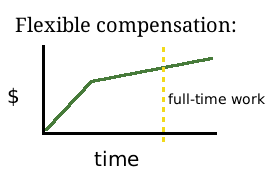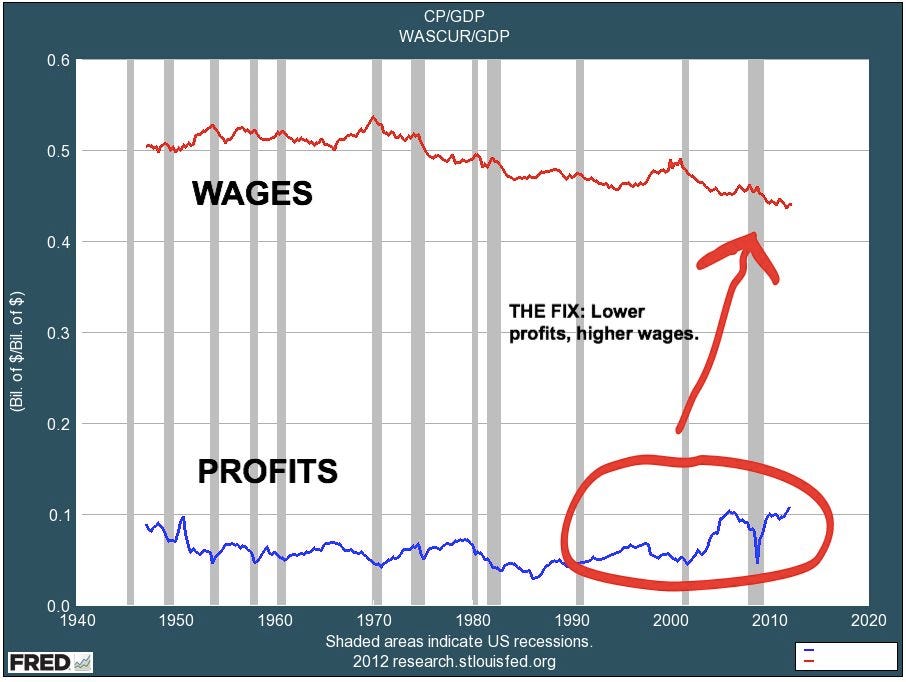Misaki
Senior Member
- Jul 8, 2011
- 159
- 30
- 46
People often assume that working more is good for the economy, because for their entire lives they have observed that those whose skills are in demand tend to work longer hours than the rest of us. If there were a better way to go about things, people reason, we would already be doing it.
There is a better way, but it requires understanding the reason why the present mode of thought exists. According to one perspective, when we work more we pay more taxes and this, along with our higher spending, leads to a more prosperous nation for everyone. This is not really true for the simple reason that people with lots of money do not spend all of it, and because welfare in the United States has never been nearly as rewarding as having a job. The idea that everyone must work full-time is, in fact, a legacy of the Cold War between the U.S. and the Soviet Union and the earlier wars of the human race.
Now, of course, with global trade and an information economy where someone 10,000 kilometers away can purchase your software as easily as someone in the same city, no one is interested in physical wars because commerce is much more profitable. Since it is so much more easier to obtain accurate information about and communicate with people in other countries, war no longer has a purpose and neither does the idea that everyone must pay as much taxes as possible by working full time.
Having decided this, it remains to be shown how we can transition to an economy where a significant number of educated workers spend less of their time working. By nature, many high-paying jobs have their value to the organization concentrated in a subset of tasks which moreover often cannot be done by anyone else, and it would not be fair to pretend that a linear reduction in time worked also results in a linear reduction in contribution to the organization. The easiest tasks are the first to be delegated and compensation must reflect this if working less is to be a viable option.
Organizations should therefore consider using a system similar to the one shown in the following chart. In some industries it might be more appropriate to consider full-time work to be defined on a yearly basis instead of a weekly one.

As it stands, the machinery of war does provide an additional option to those with economic misfortunes in the form of employment, even if it is at the risk of one's life. In this sense the military is not a bad thing. But it is unnecessary, if we create enough jobs through other means something which, as a society, we are entirely capable of doing.
Originally from OWS forums
There is a better way, but it requires understanding the reason why the present mode of thought exists. According to one perspective, when we work more we pay more taxes and this, along with our higher spending, leads to a more prosperous nation for everyone. This is not really true for the simple reason that people with lots of money do not spend all of it, and because welfare in the United States has never been nearly as rewarding as having a job. The idea that everyone must work full-time is, in fact, a legacy of the Cold War between the U.S. and the Soviet Union and the earlier wars of the human race.
Now, of course, with global trade and an information economy where someone 10,000 kilometers away can purchase your software as easily as someone in the same city, no one is interested in physical wars because commerce is much more profitable. Since it is so much more easier to obtain accurate information about and communicate with people in other countries, war no longer has a purpose and neither does the idea that everyone must pay as much taxes as possible by working full time.
Having decided this, it remains to be shown how we can transition to an economy where a significant number of educated workers spend less of their time working. By nature, many high-paying jobs have their value to the organization concentrated in a subset of tasks which moreover often cannot be done by anyone else, and it would not be fair to pretend that a linear reduction in time worked also results in a linear reduction in contribution to the organization. The easiest tasks are the first to be delegated and compensation must reflect this if working less is to be a viable option.
Organizations should therefore consider using a system similar to the one shown in the following chart. In some industries it might be more appropriate to consider full-time work to be defined on a yearly basis instead of a weekly one.

As it stands, the machinery of war does provide an additional option to those with economic misfortunes in the form of employment, even if it is at the risk of one's life. In this sense the military is not a bad thing. But it is unnecessary, if we create enough jobs through other means something which, as a society, we are entirely capable of doing.
Originally from OWS forums



